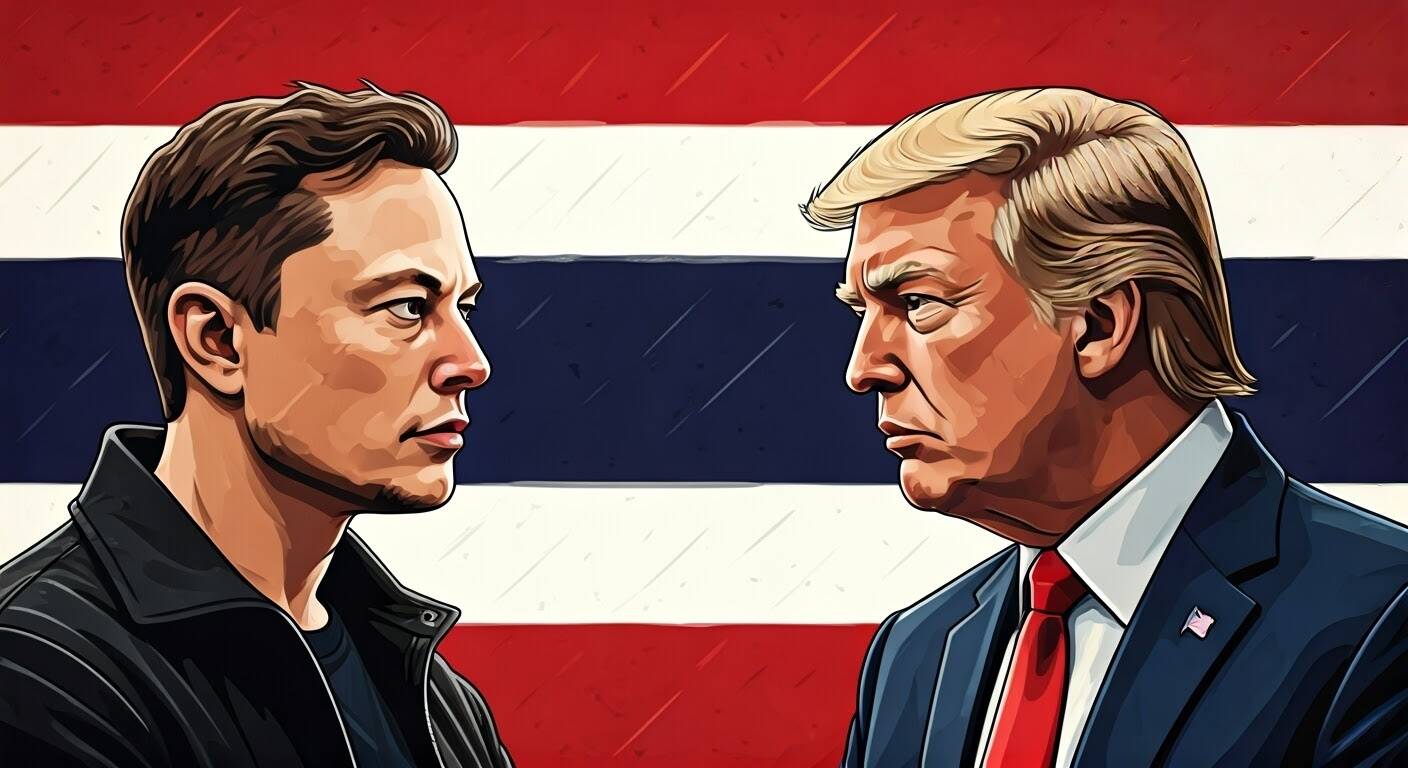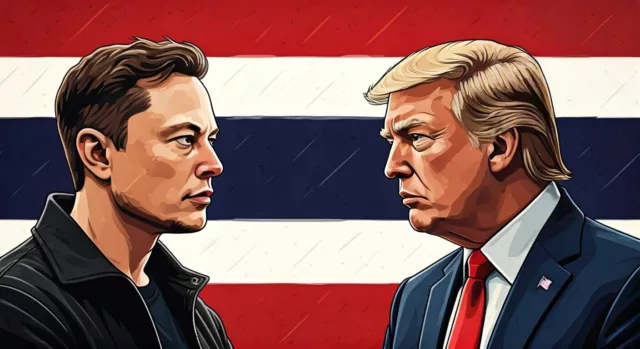
Elon Musk has publicly broken with Donald Trump over the latter’s budget reconciliation bill, calling it a «pork-filled … abomination» that would undermine the work his DOGE cost-cutting unit has done. But the bill also hits close to Tesla tycoon’s pocketbook, and at least one expert thinks it spells terrible news for the US electric vehicle industry overall.
When the president tapped Musk to lead the so-called Department of Government Efficiency through executive order – it was never a true federal agency, as only Congress can create one – the Tesla and SpaceX CEO pledged he and his minions would find more than $2 trillion to cut out of the $8 trillion-ish US annual government budget, a target he later revised to $1 trillion.
So far, DOGE has so far failed to live up to those early claims, with Musk telling the White House in April that his team had only managed to identify around $150 billion in savings. And only a fraction of DOGE’s proposed cuts have materialized into action, with the Trump administration asking Congress this week to cancel just $9.4 billion in DOGE-identified spending that had already been allocated to federal agencies.
Since leaving his temporary role as a special government employee at the end of May, Musk has come out swinging against Trump’s budget bill – dubbed the «One Big Beautiful Bill» in typical hyperbolic phrasing – which government analysts say would add around $2.4 trillion to the US deficit. That would completely undermine the spirit and point of DOGE, Musk told CBS in an interview.
Musk later called the bill a «massive, outrageous pork-filled … disgusting abomination» in a post on his personal social media platform. «Shame on those who voted for it: you know you did wrong. You know it.»
Let’s be honest, Elon
Trump’s budget reconciliation bill is huge – 1,038 pages huge, as passed by the House. With the Senate now considering the bill, it could get even longer depending on what sort of riders are added.
Hidden among all the big-ticket items – like work requirements and cuts to health care and nutrition subsidies – are a number of provisions that could hurt Tesla’s bottom line.
Narayan Subramanian, former director for energy transition at the US National Security Council and an advisor to the Biden Department of Energy on clean energy projects and supply chains, wrote a piece in Foreign Policy on Thursday arguing that Trump’s budget bill would effectively cede dominance of the entire electric vehicle supply chain and global EV dominance to China.
Subramanian, alongside Carnegie Endowment for International Peace fellow Milo McBride, noted that two key provisions of Trump’s bill would scrap the $7,500 EV tax credit – something Musk has actually once supported, saying it would help Tesla by undermining his competition – and phase out the 45X advanced manufacturing production tax credit that has been a key component of convincing battery manufacturers to build plants in the US.
Those two provisions, Subramanian and McBride said, are tightly intertwined with the Biden-era federal government’s broader push to «reorient critical mineral sourcing and processing around U.S. and allied supply chains.»
Take out the EV tax credit and US demand for electric vehicles will plummet, the pair argue. Without strong EV demand, US battery manufacturing is unlikely to scale at the pace needed to stay competitive. Dual-use technologies and smaller-device markets simply aren’t large enough to carry the weight alone. A knock-on effect from the collapse of that US manufacturing effort would likely put China in pole position to dominate the EV race around the world.
«Already in 2025, the majority of Chinese EVs are cheaper than their fossil equivalents and are flooding the world with low-cost exports,» Subramanian and McBride point out – in other words, Tesla isn’t the global market leader it once was, and those incentives are a key part of its continued «success.»
Despite higher EU tariffs on Chinese EVs versus US vehicles, Chinese automaker BYD topped Tesla in pure battery EV sales in Europe in April for the first time ever, in what automotive analysts called a «watershed moment» for the European car market.
«The United States is at a strategic crossroads now on whether it can truly compete in the global vehicle market,» Subramanian and McBride wrote.
It’s also worth pointing out that the Trump bill includes a rollback of another critical Tesla moneymaker – vehicle emissions standards. Were the big beautiful bill to pass as is, emissions standards for light and medium-duty vehicles (everything aside from tractor-trailers, essentially) would loosen significantly, leaving non-EV automakers with much less reason to invest in automotive regulatory credits – a significant source of revenue for Tesla.
Regulatory credits are made available to EV manufacturers, like Tesla, who produce vehicles that exceed emissions standards. Tesla is able to sell those credits to automakers like Ford, GM, Stellantis, and others who produce vehicles that exceed standards to offset their production.
In 2024, Tesla generated $2.76 billion in revenue from selling these regulatory credits – a 54% increase from the previous year, and a sum equal to 3% of its total revenues, and nearly 40% of its net income. In the first quarter [PDF] of this year, those credit sales hit $595 million – eclipsing the automaker’s net income of $409 million for the same period.
Speaking to The Register by phone, Subramanian told us that the impetus for his Foreign Policy piece was a defense of the EV tax credit, which he said he hasn’t seen many people arguing in favor of – even Musk.
«If you pull out [EV tax credits] – it’s like Jenga,» Subramanian said. «The whole house falls.»
In other words, Musk has more riding on this bill than on the relatively insignificant DOGE savings being sunk by a growing deficit.
Passage or no, the US EV industry – which includes Tesla – might be cooked
Subramanian told us he doesn’t think the Trump budget reconciliation bill is likely to pass in its current form given growing Republican opposition.
«Looking at a number of comments across the spectrum on the Republican side of the Senate … I think it’s highly unlikely [the bill will pass as is],» Subramanian told us.
That said, he expects a version may still reach Trump with the EV tax credit repeal intact and some modifications to the advanced manufacturing credit, changes he says won’t be enough to avoid serious damage to the American EV industry.
Subramanian declined to speculate on Musk’s opposition to the bill, but its potential effects on the EV industry make the matter pretty clear: Sure, supporting it would look bad after all that DOGE business, but this is Musk’s government-subsidized EV business we’re really talking about.
Speaking of which, we reached out to the man himself, but didn’t hear back. ®







